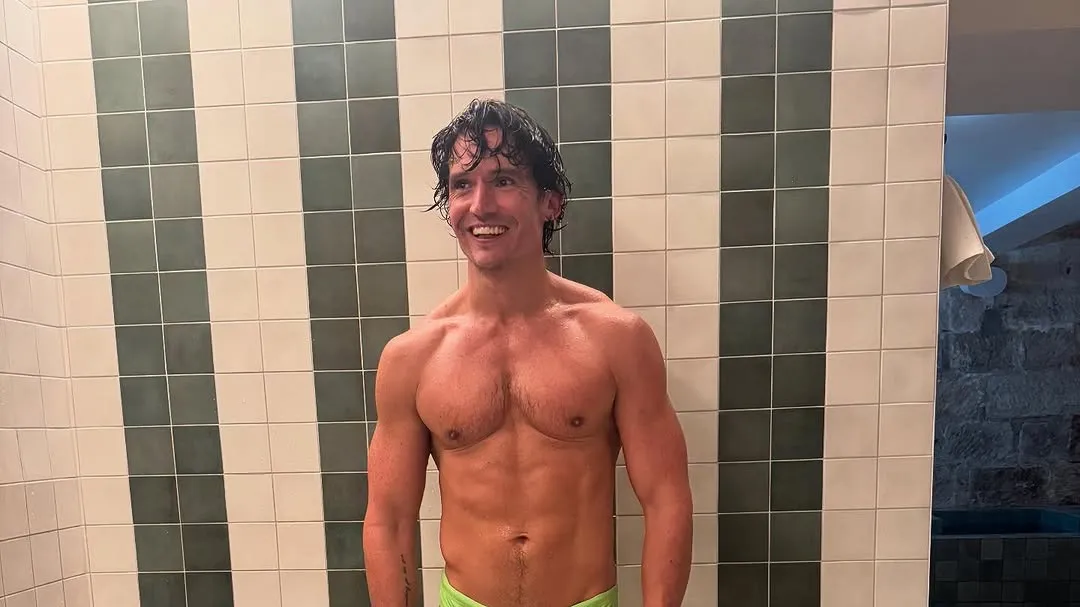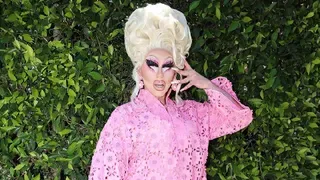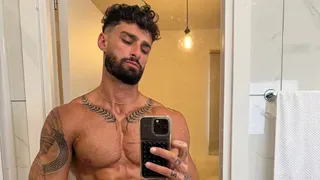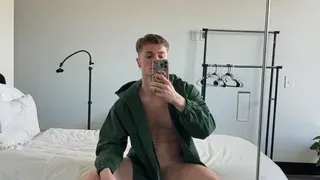September 6, 2017
'American Horror Story: Cult' is a Hysterical Political Satire
Jason St. Amand READ TIME: 4 MIN.
By now, audiences know what to expect from FX's long-running show "American Horror Story." Over the last seven years, the anthology series has been an over-the-top freak show that trades in subtlety for truly outrageous moments (drill bit dildo monsters, rubber men and minotaurs, oh my!). "AHS" doesn't slowly examine its themes, which change year-to-year, but hits you over the head with them while dazzling you with star power and stellar art design. After debuting in 2011 with "Murder House," "AHS" has gone under some changes but its core remains the same. "AHS" is not an understated quiet series with horror and genre tropes (check out SyFy's "Channel Zero" for that); the series is here to test viewers' limits and be shocking for the sake of being shocking.
Those who are here for the ride are in luck. In its seventh installment, which airs Sept. 5 on FX, "American Horror Story: Cult" takes a big risk by rebooting itself with a political twist. For months, co-creator Ryan Murphy teased the season would be inspired by the 2016 presidential election that saw Donald Trump shock the world in an unexpected victory over Hillary Clinton. Indeed, the horrors that plague "AHS: Cult" stem from the night of November 16, 2016. But this isn't "AHS: House of Cards." Murphy and co-creator Brad Falchuk keep the camp dialed up to 11 and more than past seasons, Murphy and Co. don't seem concerned with giving "AHS" a prestige sensibility, allowing the show to bask in its B-horror side. The combination of political satire and psychological horror result in a near perfect balance, making "AHS: Cult" a thoroughly entertaining experience.
"AHS: Cult" doesn't recount the arduous 2016 presidential campaign but the aftereffects from Trump being elected the 45th president of the United States. The first episode opens with a group of progressives watching the results of the election unfold in a Michigan suburb. For them, it's a nightmare scenario, especially for Ally Mayfair-Richards (Murphy muse and "AHS" all-star Sarah Paulson).
(Sarah Paulson in "American Horror Story: Cult." Photo credit: Frank Ockenfels/FX)
"I won't believe anything until I hear Rachel Maddow say it," Ally says of the outcome of the election. Moments later, when it is confirmed Trump won, she lets out a blood-curdling scream full of true despair. Elsewhere in the town, Kai Anderson (Even Peters, another "AHS" mainstay) celebrates by chanting "U-S-A" while humping his TV and making an orange facemask by liquefying Cheetos.
While Kai is experiencing ecstasy, Ally beings to slip into a psychosis of sorts. Her old fears - coulrophobia (fear of clowns) and trypophobia (fear of small holes) - rear their ugly heads and severely affect her day-to-day life, driving a wedge into her family, wife Ivy (Alison Pill), with whom she's rising a young son. Ally starts to see horrifying killer clowns pop up around her (this fear eventually transfers to her son), preventing her from living her life and help run the artesian restaurant she owns with her wife.
In addition to her hallucinations, Ally's new babysitter Winter (Billie Lourd) is basically Wednesday Addams as a 25 year old. After putting her life on pause to help Clinton's campaign, Winter is a detached and desensitized weirdo who is not a healthy influence on Ally and Ivy's son. In addition to the creepy babysitter, Ally encounters Nicole Kidman-loving new neighbors, couple Harrison and Meadow (Billy Eichner and Leslie Grossman), a mysterious truck that's spraying chemicals on her block, possible terrorist attacks, a group of serial killers and Kai - who stands for the complete opposite of everything Ally believes. But she soon finds herself seduced into Kai's world of fear and range as he runs for city council.
(Evan Peters in "American Horror Story: Cult." Photo Credit: Frank Ockenfels/FX)
Like any good psychological horror, "AHS: Cult" is relentless, keeping the tension high in almost every scene. From Mia Farrow in "Rosemary's Baby," Natalie Portman in "Black Swan," Laura Dern in "Inland Empire," Sarah Paulson's Ally is A Woman In Trouble as she witnesses the fabric of her life being torn to shreds right in front of her face. In the months following the distressing election results, Ally's foundation, like many Americans, was shook to its core, throwing her entire life off balance. Her mental instability is used as a metaphor for the world in which we live in - as of this writing, President Trump is being coy with North Korea as the secluded Kim Jong Un tests nuclear weapons.
Unsurprisingly, Paulson is terrific in this role - so good that it feels like she's a bit over-qualified to be on the campy "AHS." It's pretty wild to see Paulson go from a tough-as-nails Marcia Clark, a role that won her the Emmy last year, to a (possibly) deranged woman screaming as a grotesque clown masturbates next to her. (It sort of makes sense why Jessica Lange bowed out when she did.)
Now in its seventh season, "AHS" continues to takes risks by shaking up its format. (Last year's super secretive "AHS: Roanoke" proved to be the best season since "AHS: Asylum") Unlike past installments, "AHS: Cult" is void of the supernatural - at least judging by the first three episodes that were made available for review. The series does open up with a bloody scene with Twisty the Clown, the monstrous murdering clown from the 50s-set "AHS: Freak Show," but he's been immortalized as the star of a comic book franchise. Instead of ghosts, vampires, witches or aliens, "AHS: Cult" taps into the fear of the zeitgeist, turning liberal paranoia and the uneasiness of the Trump administration into a terrifying energy that surrounds the cast in "AHS: Cult." Holding a black mirror up to society is the smartest and scariest trick "AHS" has pulled off in years.







